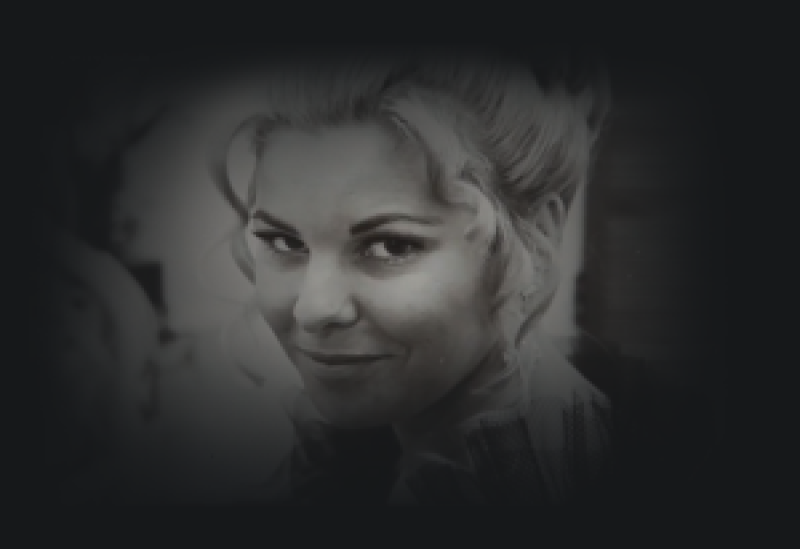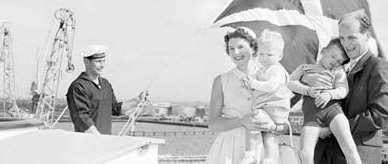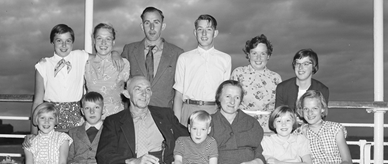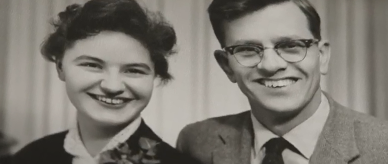As a young child, Sherry migrated from Holland to Australia with her parents in 1950. Her father was seeking post-war opportunity and a warm climate. Sherry was a popular teenage television personality and later became a social worker. She and her husband raised their family in Brisbane.
Transcript
My name originally, or still is, Berta Joanna van Wheeley and my parents migrated to Australia after the Second World War.
Holland had been occupied and bombed an awful lot. On top of that, what had happened to my dad was that he was in a part of Holland that didn’t grow its own food. There was the starvation and the impact of that severe starvation on his body, which I think, also impacted on his ability to regulate his body temperatures. He was advised that he should go to a warm climate.
My dad came out here 10 months before we did and then my mum, my sister and myself came over on one of those migrant boats. That was a 6 to 8 week journey. So he moved to Brisbane about 9 months before we arrived and then we were housed in migrant camps.
I remember them with good memories because we were all in the same boat if you like, they were from Holland and they were here, so a lot of their experiences were the same. So, there were a lot of parties and a lot of get-togethers and having dinners at peoples’ places, things like that. Everyone was so relieved to be away from the pressure of everything that had happened in the war and its aftermath that more than anything it was just happiness and hope that I recall at the migrant centres.
My very first job was on 'Teen Beat', that was on Channel 9 at the time. For the last 2 years of high school I was actually on television every second week singing songs. When I auditioned for 'Teen Beat' they asked me what my name was because it had already been anglicised from Berta to Betty and I said Berta, Betty and they said 'ugh no, that’s far too ethnic, you can’t be Berta' and at that particular stage I think the Four Seasons’ song 'Sherry' was going around and someone was playing it and they said 'no, no, no we’ll call you Sherry. Now what’s your last name?' and I said Van Wheeley, and they said 'um no, far too ethnic, so Sherry Wheeler – You’ll be Sherry Wheeler.' And so I was Sherry Wheeler. And I was sort of, then was known as Sherry Wheeler for the rest of my television life.
For Mum and Dad, I think the reality of not having any family here sometimes sat heavily in particular on my Mum. As usual when you get large groups of people from a culture moving in and then wanting to, you know, recognise their culture within the culture that was here, then there were remarks about what Dutch people were like and I remember hearing at school that Dutch people were very stingy with their money but I think the migrants that came out here were very much into 'Let’s build a future.' So, they worked very hard. Often they worked 2 jobs and then they started to do well. And then I think, maybe, envy started to set in.
When I went back to Holland it was like going to a new place for me, because I had very few memories of what it was like in Holland beforehand. What had happened to Mum and Dad when they had returned is that they really got caught up in that, what’s known as 'frozen culture', which I think happens to a lot of migrants. So everyone remembers what it was like when they left and then when they go back they’re shocked and horrified to find that it’s changed.
I would say that Australia has always been, and I think still is, a land of opportunity. There was an opportunity, and everything was still at a new stage. You know I’m really, really pleased that Mum and Dad both made the decision to come to Australia.




